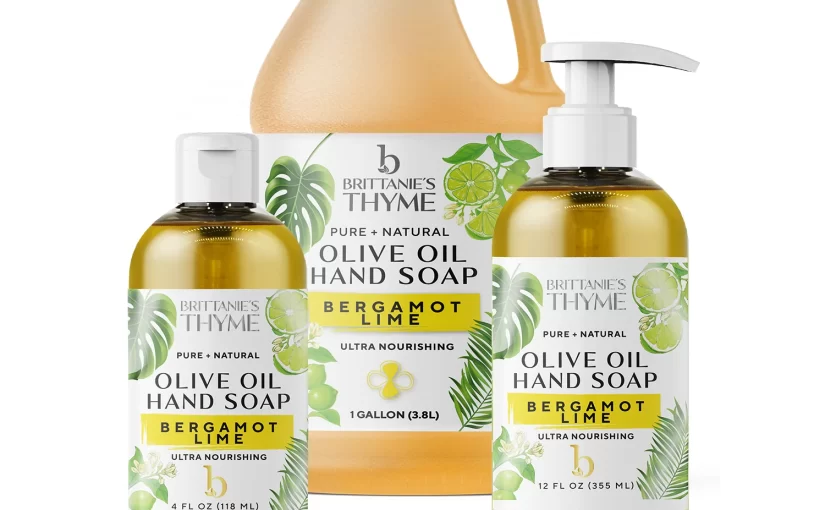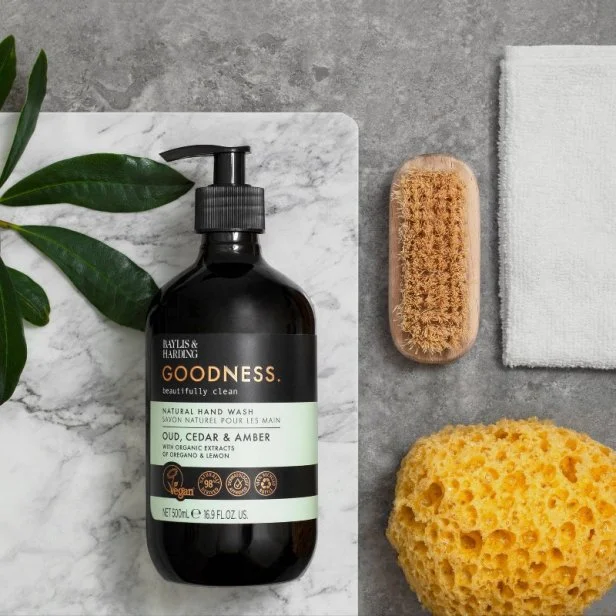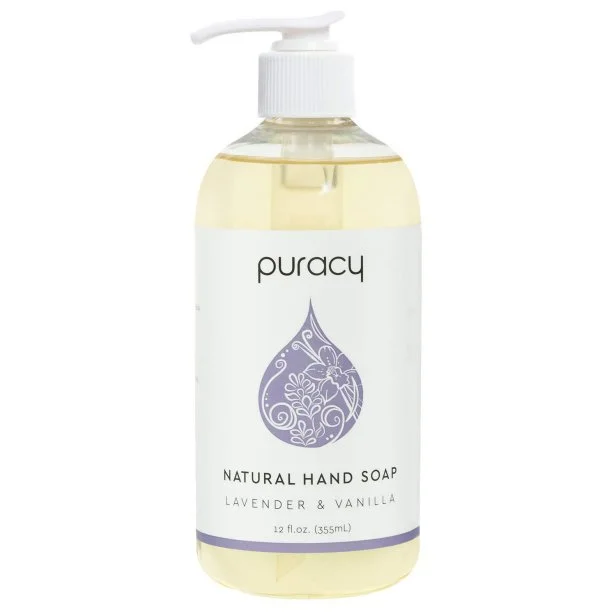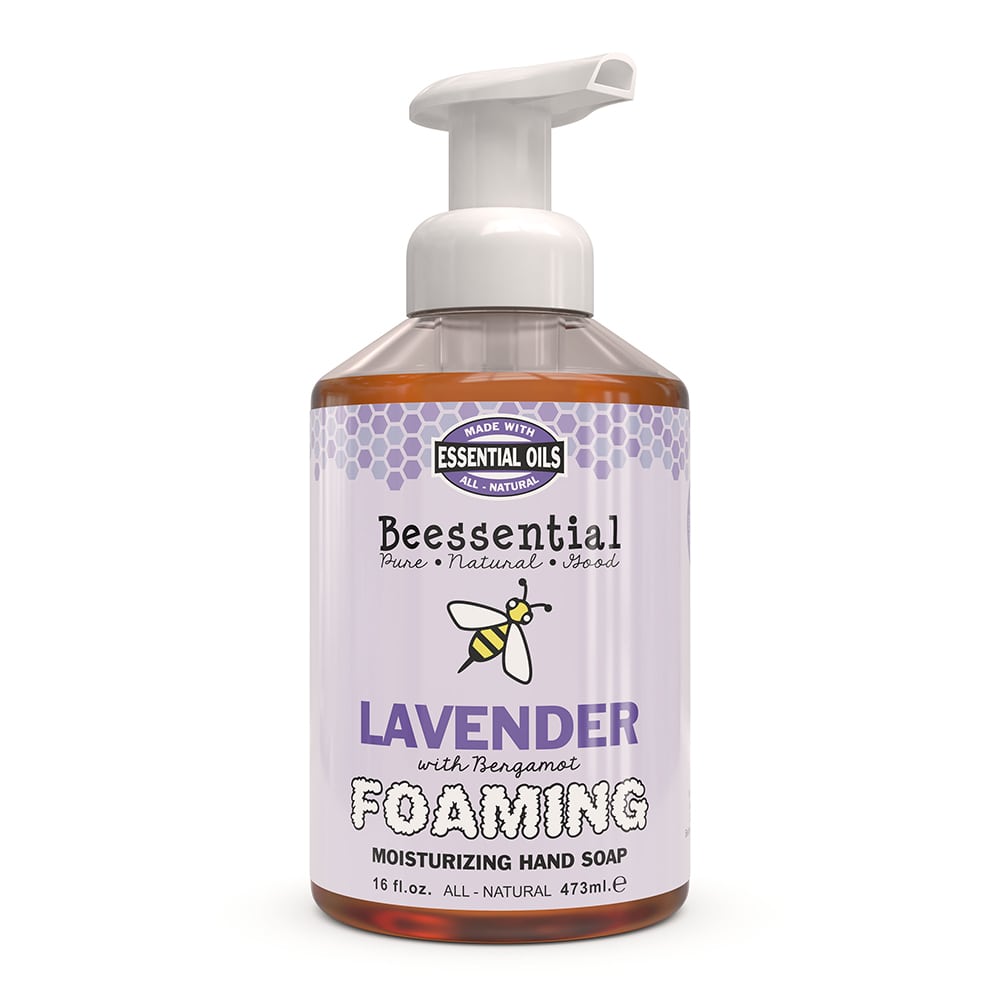Introduction to Natural Hand Soaps
With the growing interest in health and environmental sustainability, natural hand soaps are becoming a popular choice. These soaps are crafted from ingredients found in nature, such as plant extracts, oils, and minerals. They contain no synthetic chemicals, making them a safe option for skin care. Natural hand soaps offer a range of benefits beyond their earth-friendly appeal. They are often gentler on the skin compared to traditional soaps. They can also be more moisturizing, which is crucial for those who wash their hands frequently.
Choosing the best natural hand soap requires understanding what makes them different. It also means knowing what ingredients to look for. Natural hand soaps come in various forms, including bars, liquids, and foams. Each form has unique advantages. Bar soaps, for instance, tend to have minimal packaging. Liquid soaps are convenient to use. Foam soaps often use less product per wash, which can make them last longer.
In this guide, we will delve deeper into the reasons for choosing natural hand soaps. We will look at their benefits for both individuals and the environment. We will also highlight key ingredients that are signs of quality. By the end, you’ll be equipped to make an informed choice about the best natural hand soap for your needs.
Benefits of Using Natural Hand Soaps
The switch to natural hand soaps comes with many advantages. They are kinder to your skin. This is because they lack harsh chemicals found in mainstream soaps. Those with sensitive skin may especially notice a positive change. Their natural ingredients can also contribute to healthier skin overall.
Moisturizing is another major benefit of the best natural hand soap options. They often include oils and glycerin. These elements help retain skin’s moisture, which is often lost with frequent washing. So, choosing these soaps can lead to softer, less dry hands.
Natural hand soaps are also safer for all family members. From children to adults, the mild ingredients reduce the risk of skin irritation. This makes them a universally suitable choice for household use.
Lastly, natural hand soaps are better for the environment. They typically come in biodegradable packaging and without harmful pollutants. This means less impact on waterways and wildlife when they are rinsed away. By using them, you’re taking care not only of your own health, but also of the planet’s.
Key Ingredients to Look for in Natural Hand Soaps
When choosing the best natural hand soap, ingredients matter. Look for soaps with nourishing components. High-quality soaps often contain these key ingredients:
- Essential oils: They provide natural fragrance and offer therapeutic benefits. Examples include lavender for calming and tea tree for its antimicrobial properties.
- Glycerin: This is a humectant that draws moisture to the skin. It helps keep your hands soft and hydrated.
- Plant-based oils: Oils like coconut, olive, and jojoba are common. They are excellent for moisturizing and are gentle on sensitive skin.
- Aloe vera: Known for its soothing properties, aloe vera can help to calm irritated skin.
- Shea butter: This is a rich emollient that intensely moisturizes and nourishes the skin.
- Natural exfoliants: Ingredients like oatmeal or pumice can gently remove dead skin cells.
These ingredients, combined wisely, make a hand soap that’s both effective and kind to your skin. Avoid soaps with sulfates, parabens, and artificial fragrances. These can be harsh on your skin and the environment. Always read labels and opt for soaps that list their natural ingredients clearly. This way, you ensure the best care for your hands and the planet.
Understanding the Different Types of Natural Hand Soaps
When shopping for the best natural hand soap, knowing the different types is vital. The most common forms are bars, liquid soaps, and foam soaps.
Bar soaps are a classic choice. They are eco-friendly due to minimal packaging. They also tend to last longer, which means less waste.
Liquid soaps are user-friendly. They come in pump bottles for ease of use. Many prefer them for their convenience and creamy texture.
Foam soaps are economical. They dispense a pre-lathered soap, which uses less product. This makes them last longer and reduces waste.
Each type of natural hand soap has its own benefits. Yet, they all share common qualities. They are made with natural ingredients. They are free from harsh chemicals. They often contain elements that moisturize and nourish the skin.
For example, bar soaps may contain glycerin. This helps maintain the skin’s moisture. Liquid soaps might have plant-based oils, which offer deep hydration. Foam soaps could include aloe vera for its soothing touch.
It’s important to read the labels. Look for key ingredients like essential oils and natural exfoliants. Avoid soaps with synthetic additives. Those can harm your skin and the environment.
Choose a type that fits your lifestyle and preferences. Consider the soap’s ingredients and their environmental impact. By doing so, you ensure a healthier choice for both your skin and the planet.
How to Evaluate the Quality of Natural Hand Soaps
When evaluating natural hand soaps, consider their ingredients and benefits. Here’s how to assess quality effectively:
- Check the ingredient list: The best natural hand soaps have transparent ingredient lists. Look for natural components like essential oils and plant-based oils.
- Look for certification labels: Certifications, such as USDA Organic or Ecocert, indicate quality standards.
- Examine the soap’s texture and lather: Quality soaps lather well but don’t contain sulfates that can strip skin’s moisture.
- Smell the product: Natural soaps should have a mild fragrance from essential oils, not synthetic fragrances.
- Research the brand’s reputation: Read reviews to understand user experiences with the soap.
- Check for moisturizing properties: Ingredients like glycerin and shea butter suggest the soap is moisturizing.
- Consider the packaging: The best quality soaps have eco-friendly packaging, adding to their environmental appeal.
By looking at these factors, you can pick a high-quality natural hand soap that is gentle on your skin and good for the environment.
The Environmental Impact of Natural Hand Soaps
When we talk about the best natural hand soap, we must consider its impact on the environment. Natural hand soaps have several eco-friendly advantages. First, they often come with biodegradable packaging. This means they break down easier than plastic bottles, reducing landfill waste.
Second, the ingredients in natural hand soaps are less likely to harm wildlife. Many soaps contain chemicals that can hurt fish and plants when washed into waterways. Natural soaps skip these harsh substances.
Third, natural soap-making processes often use less energy. They avoid the complex chemical reactions of synthetic soaps. This means a smaller carbon footprint.
Lastly, supporting natural soap brands can encourage more eco-friendly business practices. When we buy these products, we show there’s a market for sustainability. Brands are then more likely to adopt green methods. This can lead to wider environmental benefits over time.
Pick soaps that mention their environmental impact. Look for phrases like ‘biodegradable formula’ or ‘eco-friendly packaging’. Make sure they avoid harsh chemicals. Your choice can help the planet while keeping your hands clean.
Tips for Making a Safe and Effective Choice
When selecting the best natural hand soap, safety and effectiveness are paramount. Here are practical tips to guide your choice:
- Prioritize Ingredient Transparency: Choose soaps that fully disclose their ingredients. This openness allows you to avoid harmful chemicals.
- Assess Scent Sources: Verify that the scents are from natural sources, like essential oils, not from synthetic fragrances.
- Examine Texture and Lather: A high-quality natural soap should feel smooth and produce a rich lather without synthetic foaming agents.
- Consider Skin Type Compatibility: Select a soap that matches your skin type. If you have sensitive skin, seek out soaps with calming ingredients like aloe vera.
- Research Brand Practices: Go beyond the product. Look into the brand’s values regarding environmental conservation and ethical sourcing.
- Look for Certifications: Recognitions such as USDA Organic or Ecocert can be signs of a soap’s high standards.
- Evaluate Packaging: Opt for soaps with minimal, recyclable, or biodegradable packaging to reduce your environmental footprint.
- Test for Personal Suitability: If possible, use a small amount before purchasing a full-size product to ensure it suits your skin.
Making informed choices about natural hand soaps not only benefits your skin but also supports a healthier environment. Keep these tips in mind, and you’ll find a soap that’s both safe and effective for your daily use.
Top Recommended Natural Hand Soap Brands
Selecting the best natural hand soap can be a challenge with so many choices available. To help narrow down your search, here are some top brands known for their quality and commitment to natural ingredients:
- Dr. Bronner’s: Renowned for their pure castile soaps, Dr. Bronner’s offers a variety of scents using essential oils and organic ingredients.
- Mrs. Meyer’s Clean Day: This brand is popular for its garden-inspired scents and uses a blend of essential oils, aloe vera, and olive oil in their soaps.
- Method: Known for their eco-friendly products, Method’s hand soaps are made with biodegradable formulas and come in recycled packaging.
- Seventh Generation: They produce hand soaps free from synthetic fragrances, dyes, and triclosan, focusing on gentle and sustainable ingredients.
- EO Products: With a commitment to essential oil-based products, EO hand soaps are GMO-free, cruelty-free, and made with organic ingredients.
Each brand has its unique qualities but shares a commitment to natural elements and environmental care. When picking your natural hand soap, consider these brands for their dedication to quality and sustainability. Remember to always check the ingredient list for the best care for your skin and the environment. Make your choice count for a healthier lifestyle and a cleaner planet.



